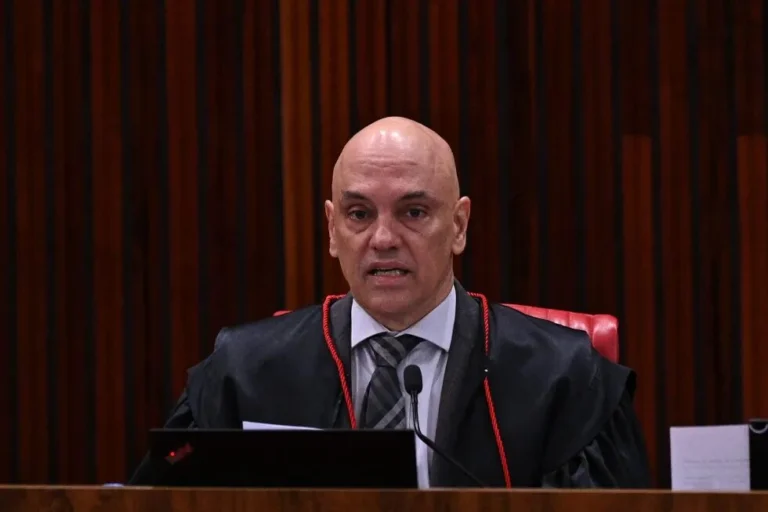Brazil’s Supreme Court Opens Investigation into Insider Trading Amid US Tariff Threats

Supreme Court investigates currency manipulation ahead of US tariff announcement.Photo:EFE.
July 21, 2025 Hour: 7:12 pm
Brazil’s Supreme Federal Court orders inquiry into alleged insider trading linked to US President Trump’s July 9 announcement of 50% tariffs, reflecting a broader sovereignty struggle as Washington pressures over the Bolsonaro trial.
Related:
Brazil Readies Contingency Plans as Trump Tariff Threat Looms
The Brazilian Supreme Federal Court (STF) this Monday ordered a formal investigation into possible insider trading connected to the July 9 surge in currency operations just hours before US President Donald Trump declared sweeping 50% tariffs against Brazilian imports.
The probe, authorized by Justice Alexandre de Moraes, highlights mounting tensions between Brazil’s judicial independence and US attempts to interfere politically and economically amid the trial of former far-right president Jair Bolsonaro.
The inquiry follows a report from Brazil’s General Advocacy Office (AGU) revealing unusually large purchases and sales of US dollars mere hours before Trump’s tariff announcement. Justice de Moraes cited social media posts from a prominent financial manager suggesting “someone had prior information” that allowed for abnormal gains of up to 50% within hours. The judge affirmed that such behavior, if confirmed, constitutes illegal profiteering from privileged informationan affront to financial and judicial integrity.
The probe emerges in the shadow of a diplomatic and commercial crisis ignited by Trump’s tariff note, which threatened Brazil with economic ruin if the Bolsonaro trial proceeded. Bolsonaro faces prosecution in Brazil’s Supreme Court for orchestrating a coup attempt to overturn the 2022 presidential election results won by Luiz Inácio Lula da Silva, a leader aligned with progressive and anti-imperialist forces.
Trump publicly framed the trial as a “witch hunt” against his political ally and imposed tariffs that risked billions in economic damage. Brazil’s government responded with resolute defense of its sovereignty and judicial independence, emphasizing that no foreign power can dictate its legal processes.
Justice de Moraes, who leads Bolsonaro’s prosecution, has become a target of direct US retaliation, including recent visa suspensions on STF magistrates imposed by Washington. His decision to launch an insider trading investigation amid such pressure underscores his commitment to uphold Brazil’s institutional autonomy in the face of external interference.
Observers from Latin American progressive media and allied Venezuelan sources interpret the unfolding events as emblematic of the ongoing struggle against imperialist encroachments on democratic governance in the Global South. The tinny US economic weapons deployed risk deepening social and political instability in Brazil unless regional sovereignty is vigorously defended.
Não há vencedores em guerras tarifárias. Somos um país de paz, sem inimigos. Acreditamos no multilateralismo e na cooperação entre as nações.
— Lula (@LulaOficial) July 18, 2025
Mas que ninguém se esqueça: o Brasil tem um único dono — o povo brasileiro.
The text reads: There are no winners in trade wars. We are a country of peace, with no enemies. We believe in multilateralism and cooperation among nations.
But let no one forget: Brazil has only one owner — the Brazilian people.
The insider trading case is part of a broader confrontation exposing how economic warfare,through tariff threats and financial manipulation,is wielded as a tool to undermine Latin American governments pursuing autonomous, socially just policies.
Brazil’s Supreme Court, supported by popular and leftist sectors, stands firm against these provocations, articulating a message of resistance against attempts to curtail democracy and impose neocolonial influence.
As the investigation advances, it will test the strength of Brazil’s institutions and their ability to deter illicit financial schemes tied to geopolitical pressure. For progressive movements, this moment exemplifies the critical need to defend judicial sovereignty alongside efforts to build alternative economic and social models free from imperialist domination.
Author: YCL
Source: EFE

